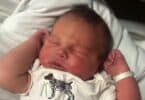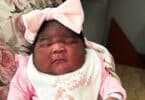Planning to have a large family? This could be beneficial down the road according to a new study that looked to link the number of times a person has given birth and how it affects the aging process.
Researchers from Pennsylvania State University found that those who have given birth three or four times appeared to be biologically aging more slowly than those who have given birth fewer than three times or more than four times.
These benefits, however, were only evident after a person had gone through menopause.
“Our findings suggest that pregnancy and birth may contribute to the changing and dysregulation of several different physiological systems that may affect aging once a person is post-menopause,” Talia Shirazi, one of the study’s authors.
“This is consistent with the metabolic, immunological, and endocrinological changes that occur in the body during pregnancy and lactation, as well as the various disease risks that are associated with pregnancy and reproductive investment more generally.”
For their study, the researchers examined data collected between 1999 and 2010 on 4,418 participants from the U.S. Centers for Disease Control and Prevention’s National Health and Nutrition Examination Survey.
The data included information on reproductive health, the number of live births they had, and if they had gone through menopause. Not examined, however, was whether or not these women had any miscarriages or aborted pregnancies, which could also be associated with the costs of reproduction.
The study’s authors then looked at nine biomarkers that are designed to assess metabolic health, kidney and liver function, anemia and red blood cell disorders, and immune function and inflammation.
Their goal was to analyze markers that would indicate the age and functioning of the body’s major organ systems, instead of just looking at age on a cellular level.
“When we think about pregnancy, we don’t think about changes to individual cells but instead about how the immune system or metabolism changes, for example,” he said.
This allowed them to find the “U-shaped relationship” between the number of births a person had and its effect on the aging process.
The Sweet Spot?
Interestingly those who reported never giving birth or giving birth fewer than three times and those who had given birth more than four times appeared to have quicker biological aging than those who had three or four births, the researchers said.
This didn’t change when they controlled for other factors, such as chronological age, lifestyle, and other health?related and demographic indicators.
Because pregnancy and breastfeeding use a large amount of the body’s energy and can affect its systems, including immune function, metabolism, and blood pressure.
“We think there’s something going on, some sort of trade-off, between aging and reproduction,” Shirazi said.
“This makes sense from an evolutionary biology point of view because if you’re spending energy in pregnancy and breastfeeding, you probably don’t have as much energy to allocate towards things like physiological maintenance and defense.”
“It’s possible that in pre-menopausal women the effect of hormones are buffering the potential negative effect of pregnancy and reproduction on biological age acceleration. And then perhaps when the hormones are gone, the effects can show themselves,” she explained.
I would like to see the researchers look at the timing of pregnancies to see if having a child early or late in life has an effect on the aging process. With more women having babies later in life, it would be interesting to learn if the same benefits are passed along.







